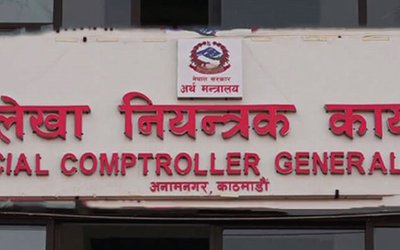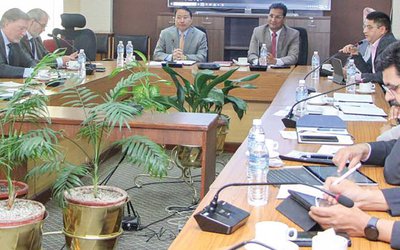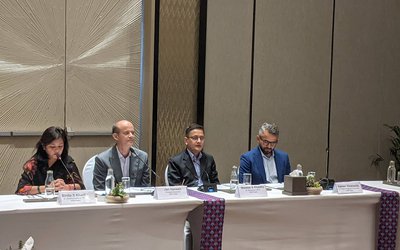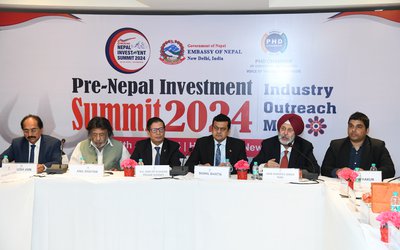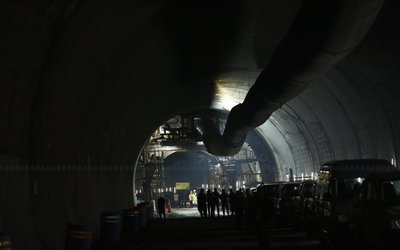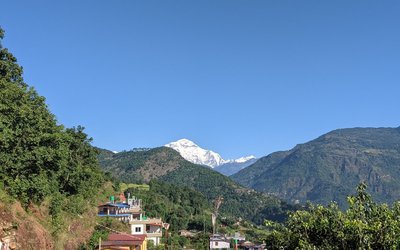Under international convention, a landlocked country has the right of transit passage to the sea through its coastal neighbor. At the operational level, much hinges on the discretion of the neighbour. Indian insistence on inserting in the treaty a provision for an additional lock on transit cargo is reportedly holding up treaty renewal. Industrialists and actors in the logistics chain argue it is unnecessary to take a stand on this issue and, if anything, it should facilitate Nepal’s third-country trade, avoiding hold-ups when a single lock seems to be or really is out of place, and the benefit is worth the marginal cost of an extra lock. The Nepali side, at the initiative of the foreign ministry, is resisting the proposal. The resistance is not totally unfounded: Nepal having to accept one demand after another of the other side even as a litany of transit difficulties faced by Nepal remains unsolved. The additional lock issue should, therefore, be considered in the broader context of Nepal’s transit woes.
Lest we forget (and that seems to be the habit of our stock), the blockade on Nepal in 1989 was the first blockade imposed by a country on its landlocked neighbour after World War II without a formal declaration of a war. Remember also the reluctance with which Nepal’s long-standing demand for a separation of trade and transit treaties was met in 1978. The demand stemmed from the principle that transit—crucial for Nepal’s third-country trade links—must not be held hostage to bilateral trade relations on one pretext or the other.
Security is used to justify restrictive transit facility for Nepal (although Bhutan, another landlocked country in South Asia dependent on India for transit, enjoys a highly liberal transit regime, not least because it is allowed conduct transit trade under the supervision of Bhutanese customs). But, as fate would have it, India’s desire to secure transit passage through Bangladesh for its internal as well as international trade is running into stiff resistance in the latter, and security concern is one reason behind the resistance. Such concerns cannot be brushed aside especially in the light of the fact that India has been denying landlocked Nepal unhindered transit through its territory for Nepal’s trade with Bangladesh and third countries using Bangladeshi ports on security grounds, besides fear of trade deflection. Surely, what is sauce of the geese is also sauce for the gander. This is despite the fact that all three countries are members of the World Trade Organization (WTO) and Article V of the General Agreement on Tariffs and Trade (GATT) provides for “…freedom of transit through the territory of each contracting party, via the routes most convenient for international transit, for traffic in transit to or from the territory of other contracting parties” on a non-discriminatory basis. Importantly, the Article does not require the transit trade to be preceded or succeeded by a sea journey. Valid concerns of security and trade deflection can be addressed through, for example, the adoption of the TIR (Transports Internationaux Routiers) system or a similar regionally based equivalent customs transit system. But if the transit-providing country views transit as a leverage over its landlocked neighbour, then no security concern can ever be mitigated.
The controversy over double lock, in which the foreign minister has weighed in in a queer fit of nationalism, diverts attention from other, far more serious problems on the transit front. A host of transit restrictions is in place, causing delays, raising the landed prices of imports and eroding export competitiveness. The restrictions operate at two levels: transit to access Indian sea-ports, and transit through Indian territory to access Bangladeshi markets and sea-ports. Cumbersome transit processes, including procedural controls, citing the possibility of trade deflection, are in place. It is customary for Indian authorities to issue unilateral notifications on transit and customs matters. Hassles in the form of multiple checking agencies mar the entire transit process. Actual documentary requirements are higher than those specified in the treaty. The consent to allow Nepal to use Vishakhapatnam port as an alternative to the congested Kolkata/Hadia ports where mother vessels cannot berth, thereby necessitating transshipment via Colombo and Singapore ports, has not been followed through. Burdensome procedures and controls—including one that causes high insurance costs for Nepali cargo—raise transit time and cost, and thereby reduce trade competitiveness, hurting producers and consumers alike. Through-bills-of-lading (TBLs) are not issued for cargo to and from Nepal, with the result of low utilization of the Birgunj dry port. The most important advantage of issuing and receiving TBLs at a dry port is that they reduce customs and clearance activities at sea-ports to a minimum, with only the transport activities of transit being emphasized. The pledge to grant Nepal transit through India for Nepal’s bilateral as well as transit trade with Bangladesh via the Rohanpur-Singhabad railway point remains a pledge. And then there is the highly restrictive transit regime governing road-based transit through India along the 55-km Kakarbhitta/Panitanki-Fulbari/Banglabandh route.
While bilateralism is India’s preferred approach to dealing with its neighbours, for a landlocked country like Nepal, a regional approach to transit is in its interest. A regional transit arrangement will create a level playing field and address the problem of low bargaining power of the smaller and vulnerable nations, particularly landlocked ones. Through a regional agreement, landlocked countries stand to secure better transit rights, and the realization of such rights will be less dependent on their political relationship with any particular country as any restriction and the resultant dispute will be a regional issue as opposed to a bilateral issue. Coastal countries—the traditional “transit-providers”—also stand to benefit from regional cooperation on transit and transport. For example, a 20-foot container takes at least 30-45 days to move between New Delhi and Dhaka through the maritime route at a cost of around US$2,500, whereas if there were direct rail connectivity, the time would be reduced to 4-5 days and the cost would drop to around US$850. Likewise, substantial time and cost savings could accrue if India were to be able to use Bangladesh territory for transportation of goods between parts of India’s northeastern states and Kolkata. Similarly, a container from Dhaka to Lahore now needs to travel 7,162 km by sea instead of 2,300 km, as overland movement across India is not allowed.
A regional transit transport agreement would need to be backed by investments in infrastructures (including roads, railways and sea-ports, customs and communications. The SAARC Regional Multi-modal Transport Study identified 10 road corridors, 5 rail corridors, 2 inland waterway transport corridors, 10 maritime corridors and 16 aviation gateways as having great potential to improve regional connectivity. But for their approval by the 14th SAARC Summit in 2007, progress has been nil. When will the bilateralist mindset change?




